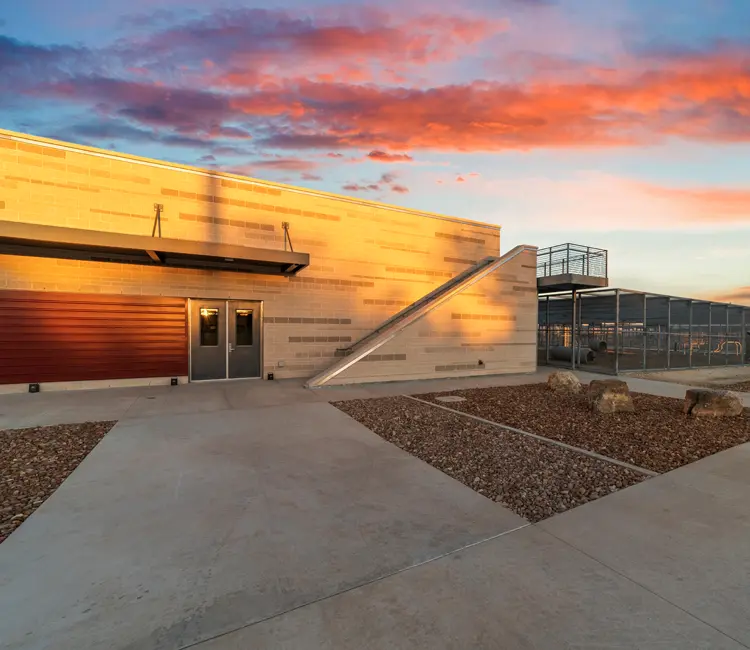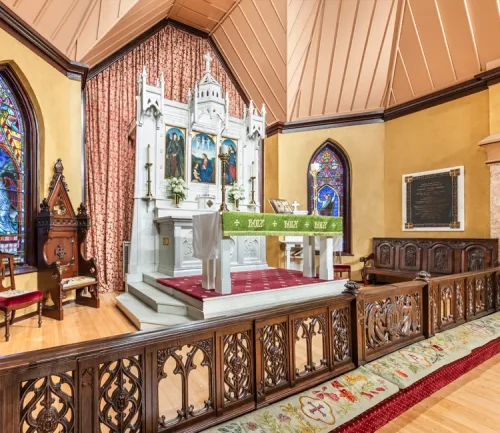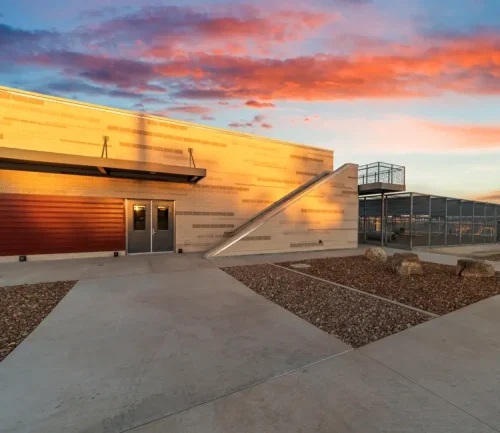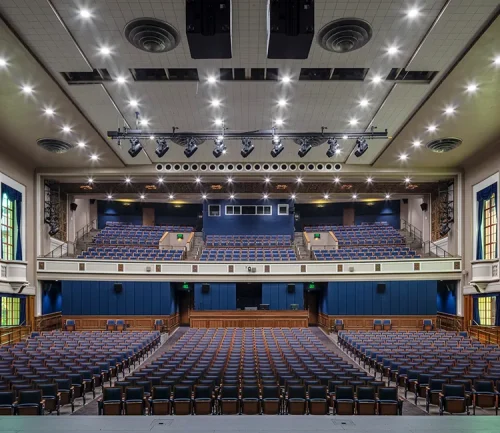Texas Biomedical Research Institute
Animal Care Complex
Owner: Texas Biomedical Research Institute
Architect: Flad Architects
Recognized as a global leader in the research of infectious diseases, Texas Biomedical Research Institute (Texas Biomed) has pioneered the biosciences industry for more than 80 years. The Institute’s 200-acre campus, located in west San Antonio, hosts numerous research programs, including the Southwest National Primate Research Center (SNPRC), which provides specialized resources to conduct research with nonhuman primates. In response to the ever-increasing demand for these resources, the need arose for a new Animal Care Complex that would expand housing capacity and enhance the quality of accommodations for the animals in their care.
SpawGlass-San Antonio completed the initial phase of this project, a first-of-its-kind facility consisting of two expansive animal housing buildings and a mechanical equipment yard. Each of the structures contains 8,500 square feet of indoor space and 22,000 square feet of outdoor caging. The second phase of this project will include a hospital and surgical suite, pathology suites, research areas and a third animal housing complex. After completion, the four newly constructed buildings will enable the Institute to house a total of 3,500 animals.
Alongside Flad Architects, the SpawGlass team collaborated with SNPRC to construct a facility that will uphold the Center’s longstanding commitment to exemplary animal care, ensuring the new complex exceeds industry guidelines for quality, size and safety. This innovative facility is the first in the nation to introduce “freedom of choice” spaces for the primates, allowing them to move between indoor and outdoor environments at will. The outdoor spaces feature perches, climbing structures, toys and other environmental enrichment tools. The climate-controlled interior spaces are equipped with radiant heat flooring and large overhead skylights, providing a secure, comfortable environment.
This unique facility presented special challenges and – armed with creative thinking and attention to detail – the team was up for the task. Project Manager Rex Cody talked with architects from around the world to help Texas Biomed find the right firm to design the caging areas, bringing in extra help from local San Antonio architect Kerry Andrews. Assembly of the cages required a meticulous construction process, utilizing around 7,000 individual pieces of steel and powder-weighted fasteners that provide enhanced safety for the animals and reduce the need for long-term maintenance. Coordinating mechanical, electrical, and plumbing (MEP) systems within a confined space was another puzzle to be solved. Because half of the indoor space is dedicated to caging areas, with large skylights that cover most of the ceilings, there was limited room reserved for the overhead systems. SpawGlass assembled a team that included MEP Coordinator Ross Ruggles, whose expertise enabled them to navigate this situation with proactive strategies and solutions.
The project is a testament to our team’s knowledge and experience within the life sciences sector, a rapidly evolving field that involves a variety of scientific disciplines. To emphasize the importance of this specialty, SpawGlass created a Life Sciences Center of Excellence – a committee of team members dedicated to sharing building techniques, resources and technologies related to life sciences construction. Rex emphasized the significance of the project and its purpose, stating: “Texas Biomed is paving the way for life sciences in the state, the country and the world. We’re proud to be their trusted contractor, and we look forward to continuing to work with them to protect our communities from the threat of infectious diseases.” As part of SpawGlass’ full life cycle construction services, a facility maintenance contract with our Building Services team has been established, proving the team’s commitment to building trust.
The Animal Care Complex at Texas Biomed is one of our most notable life sciences projects to date, and it certainly won’t be the last. With a successful first phase completed, this project team exemplifies SpawGlass’ dedication to the life sciences sector, helping to enable globally significant scientific research and enhancing the quality of life in our own communities and beyond.





